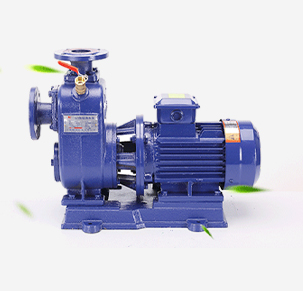English
- Afrikaans
- Albanian
- Amharic
- Arabic
- Armenian
- Azerbaijani
- Basque
- Belarusian
- Bengali
- Bosnian
- Bulgarian
- Catalan
- Cebuano
- Corsican
- Croatian
- Czech
- Danish
- Dutch
- English
- Esperanto
- Estonian
- Finnish
- French
- Frisian
- Galician
- Georgian
- German
- Greek
- Gujarati
- Haitian Creole
- hausa
- hawaiian
- Hebrew
- Hindi
- Miao
- Hungarian
- Icelandic
- igbo
- Indonesian
- irish
- Italian
- Japanese
- Javanese
- Kannada
- kazakh
- Khmer
- Rwandese
- Korean
- Kurdish
- Kyrgyz
- Lao
- Latin
- Latvian
- Lithuanian
- Luxembourgish
- Macedonian
- Malgashi
- Malay
- Malayalam
- Maltese
- Maori
- Marathi
- Mongolian
- Myanmar
- Nepali
- Norwegian
- Norwegian
- Occitan
- Pashto
- Persian
- Polish
- Portuguese
- Punjabi
- Romanian
- Russian
- Samoan
- Scottish Gaelic
- Serbian
- Sesotho
- Shona
- Sindhi
- Sinhala
- Slovak
- Slovenian
- Somali
- Spanish
- Sundanese
- Swahili
- Swedish
- Tagalog
- Tajik
- Tamil
- Tatar
- Telugu
- Thai
- Turkish
- Turkmen
- Ukrainian
- Urdu
- Uighur
- Uzbek
- Vietnamese
- Welsh
- Bantu
- Yiddish
- Yoruba
- Zulu
Telephone: +86 13120555503
Email: frank@cypump.com
Jul . 27, 2024 11:43 Back to list
Design and Efficiency Analysis of Pipeline Centrifugal Pump Systems for Optimal Fluid Transport Solutions
Pipeline Centrifugal Pumps Essential Components for Fluid Transport
Centrifugal pumps play a critical role in various industries, especially in fluid transport through pipelines. These pumps convert mechanical energy into hydraulic energy, allowing for the efficient movement of liquids over considerable distances. This article explores the principles of operation, benefits, applications, and maintenance of pipeline centrifugal pumps.
Principles of Operation
Centrifugal pumps operate on the principle of centrifugal force. When the pump is activated, an impeller—a rotating component—spins rapidly within a casing. This rotation creates a drop in pressure at the eye (center) of the impeller, causing the liquid to be drawn into the pump. As the liquid flows through the impeller, it experiences an increase in velocity and kinetic energy, which is converted into pressure energy as the liquid exits through the pump's discharge. This conversion is fundamental for transporting fluids through pipelines effectively.
The performance of a centrifugal pump is typically characterized by its flow rate, pressure, and efficiency. The flow rate is determined by the impeller's design, size, and rotational speed. A well-designed impeller can significantly enhance the pump's overall efficiency, making it capable of handling varying fluid properties and flow conditions.
Advantages of Centrifugal Pumps
One of the primary advantages of pipeline centrifugal pumps is their ability to maintain a steady flow rate, making them suitable for applications requiring consistent delivery of fluids. They are also relatively simple in design, leading to ease of operation and maintenance. Their robust construction allows them to handle various liquids, including clean water, slurries, and even viscous fluids when properly configured.
pipeline centrifugal pump

Centrifugal pumps are known for their reliability and longevity, especially when operated under optimal conditions. Additionally, their adaptability enables them to be used in diverse industries, including water supply, wastewater treatment, petrochemical, food processing, and agriculture.
Applications
The applications of pipeline centrifugal pumps are vast. In the water supply sector, they are used for drinking water distribution and irrigation systems. In the oil and gas industry, they facilitate the transportation of crude oil, refined products, and natural gas. Centrifugal pumps are also essential in chemical processing for transferring corrosive and non-corrosive fluids. Their versatility extends to HVAC systems, where they circulate water for heating and cooling purposes.
Moreover, pipeline centrifugal pumps are integral in the mining industry, where they manage slurry transport, and in the pharmaceutical sector, ensuring the careful handling of sensitive liquids. This wide range of applications underscores their importance in modern industrial processes.
Maintenance Considerations
To ensure optimal performance and longevity of pipeline centrifugal pumps, regular maintenance is essential. Routine checks should include inspecting seals, bearings, and impellers for wear and tear. Proper alignment during installation and operation is crucial to prevent vibration-induced damage. Fluid compatibility is also a factor; using a pump designed for the specific liquid will help avoid chemical reactions and degradation of materials.
In summary, pipeline centrifugal pumps are indispensable tools for fluid transport across various industries. Their unique operational principles, coupled with their advantages, make them a preferred choice for many applications. By understanding their capabilities and implementing proper maintenance practices, organizations can maximize the efficiency and reliability of their pumping systems, ensuring fluid transport remains uninterrupted and effective.
-
ISG Series Pipeline Pump - Chi Yuan Pumps | High Efficiency, Durable Design
NewsAug.01,2025
-
Advanced Flue Gas Desulfurization Pump with GPT-4 Turbo | Durable & Efficient
NewsJul.31,2025
-
ISG Series Vertical Pipeline Pump - Chi Yuan Pumps | Advanced Hydraulic Design&Durable Construction
NewsJul.31,2025
-
ISG Series Vertical Pipeline Pump - Chi Yuan Pumps | Energy Efficient & Low Noise
NewsJul.31,2025
-
pipeline pump - Chi Yuan Pumps Co., LTD.|High Efficiency&Low Noise
NewsJul.31,2025
-
ISG Series Vertical Pipeline Pump - Chi Yuan Pumps Co., LTD.|High Efficiency, Energy Saving, Low Noise
NewsJul.30,2025










